Mineral Extraction and mining is not only a consideration for the Caribbean homeland. It is also a concern for the seas and waterways in the region. Both land and sea is in scope for technocratic stewardship.
The land-side has experienced some abuse; it had previously been scarred-and-scotched. But, what about the seas?
Yes, there has been dredging and Mineral Extraction – think Sand.

But there is a greater demand for our Beach sand – which can be retrieved from the seabed. Many times, we have not supplied all the demand.
This is wise, as we first need to protect our own environment while contemplating the Commerce of the Seas.
All in all, there are a lot of heavy issues involved in this discussion. This is part and parcel of the current series on Mineral Extraction. This is the continuation of the January 2021 Teaching Series from the movement behind the 2013 book Go Lean … Caribbean book. This is submission 4-of-6. Every month, we message about serious issues germane to Caribbean life and culture. This month our focus is on reforming and transforming the Caribbean economic engines around Mineral Extractions.
This is the full catalog of the series of commentaries this month:
- Mineral Extraction 101 – Raw Materials ==> Finished Goods
- Mineral Extraction 101 – Lesson from History: Jamaica’s Bauxite
- Mineral Extraction 101 – Industrial Reboot – Modern factories – Small footprints
- Mineral Extraction 101 – Commerce of the Seas – Encore
- Mineral Extraction 101 – Restoration after Extraction – Cool Sites
- Mineral Extraction 101 – Sovereign Wealth Fund – Not the Panacea
Let’s dig deep in the sea-side implications of Mineral Extractions.
We had previously discussed the Commerce of the Seas and the impact of Mineral Extractions and oil exploration. It is only apropos to Encore that June 14, 2017 commentary again here-now:
———————-
Go Lean Commentary – Commerce of the Seas – Extraction Realities
According to the book Go Lean…Caribbean, ‘Luck is the destination where opportunity meets preparation’ – Page 252.
Well, opportunity is awaiting the Caribbean … for mineral extraction and oil exploration.
 The book also alerts the Caribbean region that Climate Change is raging forward, with a lot of repercussions in its wake. Global warming is resulting in higher sea levels, due to the melting of the polar ice craps/icebergs. A repercussion is:
The book also alerts the Caribbean region that Climate Change is raging forward, with a lot of repercussions in its wake. Global warming is resulting in higher sea levels, due to the melting of the polar ice craps/icebergs. A repercussion is:
Beach erosion.
Beaches are gravely important for the American East Coast. (They are important to Caribbean communities as well). So many communities depend on beach vacation and traffic during the spring/summer months (think Spring Break and the commercial summer season of Memorial Day to Labor Day). So when oil spills or predictable storms endanger beach sand, it becomes an urgent imperative for communities to assuage the crisis, even replace the sand; consider these recent News Articles/Summaries here:
Title: Beach Erosion on the US East Coast
January 2, 2017: A possible solution for replacing sand on South Florida beaches is buying it from the Bahamas. The US federal government has now loosened rules to make this possible.
2. https://www.scientificamerican.com/article/what-causes-beach-erosion/
The Art-and-Science of beach management is now being challenged – “Unfortunately for beach lovers and owners of high-priced beach-front homes, coastal erosion in any form is usually a one-way trip. Man-made techniques such as beach nourishment—whereby sand is dredged from off-shore sources and deposited along otherwise vanishing beaches—may slow the process, but nothing short of global cooling or some other major geomorphic change will stop it altogether.”
3. http://abcnews.go.com/US/deepdive/disappearing-beaches-sea-level-rise-39427567
DISAPPEARING BEACHES – A Line in the Sand – A tragic story of a family that buys a beach house in 1982, but today, they have to abandon it because of the eroding sands, and bedrock under the house.
4. AUDIO: http://www.npr.org/2014/09/18/348985568/a-coastal-paradise-confronts-its-watery-future
September 18, 2014 – There is ‘Trouble in Paradise’. Beachfront communities are finding the waters rising more and more due to global warming.
——–Title: Oil Exploration and Drilling
http://www.npr.org/2015/03/12/392383373/plans-to-explore-for-oil-offshore-worry-east-coast-residents
March 12, 2015
March 12, 2015 – As the [US federal government] administration opens the door to offshore drilling, the oil industry is promising more jobs and less reliance on foreign oil. … Coastal towns and cities in several states are formally opposing offshore drilling and oil exploration.
——–
Everyone has a price! So if the price goes up high enough, there may be interested parties among Caribbean member-states to take the money for allowing mineral/oil extraction in their offshore vicinity. There is a need to be alarmed at such proposals, as dredging sand or drilling for oil may endanger protected reefs or other underwater marine features.
With greater demand – imagine post hurricanes – the Laws of Supply-and-Demand will mandate that the prices for extracted minerals will only increase.
It will get more and more tempting!
The movement behind the book Go Lean…Caribbean wants to add other types of economic activities to the Caribbean landscape; we urgently want to use the sea as an industrial zone. This is because the Caribbean region is badly in need of jobs. The book urges communities to empower the economic engines of the Caribbean Sea, as in mineral & oil extraction.
The region’s economic driver is tourism. Tourism and “mineral extraction or oil exploration” are incompatible activities. Thus there is the need for the cautions in this commentary. The challenge is to embrace the commerce of mineral extraction for the positives, while avoiding the negatives.
Challenge accepted!
The book Go Lean…Caribbean serves as a roadmap for the introduction and implementation of the Caribbean Union Trade Federation (CU). This would be the governmental entity for a regional Single Market that covers the land territories of the 30 member-states, and their aligning seas; (including the 1,063,000 square miles of the Caribbean Sea). The Go Lean/CU roadmap features this prime directive, as defined by these 3 statements:
- Optimization of the economic engines to grow the regional economy to $800 Billion & create 2.2 million new jobs.
- Establishment of a security apparatus to protect public safety and ensure the economic engines of the region, including the seas.
- Improvement of Caribbean governance to support these engines in local governments and in the Exclusive Economic Zone, including a separation-of-powers between the member-states and CU federal agencies.
This commentary posits that there are opportunities for the Caribbean to better explore the “Commerce of the Seas”, to deploy International Maritime Organisation-compliant offshore mineral/oil extraction and dredging operations. There are so many lessons that we can learn from the Economic History of other communities and their exploitation of extraction on the high seas. This commentary previously identified a series of 4 commentaries considering the Lessons in Economic History related to “Commerce of the Seas”; this entry is a 5th entry. The full series is as follows:
- Commerce of the Seas – Stupidity of the Jones Act
- Commerce of the Seas – Book Review: ‘Sea Power’
- Commerce of the Seas – Shipbuilding Model of Ingalls
- Commerce of the Seas – Lessons from Alang (India)
- Commerce of the Seas – Extraction Reality
The reference to “Commerce” refers to the economic interest of the 30 member-states in the Caribbean region. There is the need for more commercial opportunities that would impact the community with job and entrepreneurial empowerments.
Mineral extraction and oil exploration could be providential! Consider these foregoing source references.
In a previous blog, Guyana prioritized oil exploration and drilling as an economic activity in their Exclusive Economic Zone…
… the oil industry/eco-system could be a dizzying ride, up and down, complete with exhilaration and anxiety, especially for communities with mono-industrial economic engines. Trinidad is once such community. Now Guyana is entering that fray.
There are other countries seeking to join these ranks: Haiti, Jamaica, and the Bahamas.
A key consideration in this commentary is the concept of Exclusive Economic Zones (EEZ). Every Caribbean nation with no immediate neighbor within the 200 miles has this exclusive territory to exploit; the previously identified blog-commentary from May 25, 2015 detailed the encyclopedic details, shown here again in Appendix A.
The EEZ is factored in for mineral extraction and oil exploration. This is both a simple and a complicated issue. There is a lot of heavy-lifting involved to balance the needs of commerce and environmental protection.
This is the guidance from the book Go Lean … Caribbean. The CU federation is designed to employ best practices for economics, security and governance. The CU/Go Lean roadmap posits that “Extractions” (Oil and minerals like Rare Earths) must be a significant tactic for the Caribbean region to elevate its society.
The implementation of the CU allows for the designation of an enlarged Exclusive Economic Zones – requiring special approval from an United Nations Tribunal – consolidating existing EEZ’s and the technocratic cooperative-administration of Extractions within that space. This vision was embedded in the Go Lean’s book’s opening Declaration of Interdependence. See the need for regional coordination and integration pronounced these sample stanzas (Page 11 – 13):
i. Whereas the earth’s climate has undeniably changed resulting in more severe tropical weather storms, it is necessary to prepare to insure the safety and security of life, property and systems of commerce in our geographical region. As nature recognizes no borders in the target of its destruction, we also must set aside border considerations in the preparation and response to these weather challenges.
v. Whereas the natural formation of our landmass and coastlines entail a large portion of waterscapes, the reality of management of our interior calls for extended oversight of the waterways between the islands. The internationally accepted 12-mile limits for national borders must be extended by International Tribunals to encompass the areas in between islands. The individual states must maintain their 12-mile borders while the sovereignty of this expanded area, the Exclusive Economic Zone, must be vested in the accedence of this Federation.
xi. Whereas all men are entitled to the benefits of good governance in a free society, “new guards” must be enacted to dissuade the emergence of incompetence, corruption, nepotism and cronyism at the peril of the people’s best interest. The Federation must guarantee the executions of a social contract between government and the governed.
xxvi. Whereas the Caribbean region must have new jobs to empower the engines of the economy and create the income sources for prosperity, and encourage the next generation to forge their dreams right at home, the Federation must therefore foster the development of new industries, like that of ship-building…. In addition, the Federation must invigorate the enterprises related to existing industries like … fisheries … – impacting the region with more jobs.
The Go Lean book provides a 370-page guide on “how” to optimize the eco-system for mineral extraction and oil exploration in an integrated Caribbean region, for the geographic area of the Caribbean Sea. This is the “Commerce of the Seas”.
The Go Lean/CU roadmap asserts that as the confederation for the region’s 30 member-states, the CU, will be the administrator of this EEZ. Step One / Day One of the roadmap calls for awarding contracts for oil exploration and other extractions in the EEZ – this is one of the methods for financing the CU; this is how to Pay For Change.
The Go Lean roadmap details a series of community ethos, strategies, tactics, implementations and advocacies to foster development, administration and protections in the Caribbean EEZ. Consider this sample except (headlines) from the book’s Page 195:
10 Ways to Impact Extractions
Case Study: The Bottom Line on the Deepwater Horizon Oil Spill
The disaster (also referred to as the BP Oil spill or the Macondo blowout) was an oil spill in the Gulf of Mexico on the BP operated Macondo Prospect, considered the largest accidental marine oil spill in the history of the petroleum industry. Following the explosion and sinking of the Deepwater Horizon oil rig, which claimed 11 lives, a sea-floor oil gusher flowed for 87 days, until it was finally capped on 15 July 2010. The total discharge is estimated at 4.9 million barrels (210 million gallons), resulting in a massive response ensued to protect beaches, wetlands and estuaries from the spreading oil utilizing skimmer ships, floating booms, controlled burns and 1.84 million gallons of Corexit (a chemical oil dispersant). After several failed efforts to contain the flow, the well was declared sealed on 19 September 2010. Due to the months-long spill, along with adverse effects from the response and cleanup activities, extensive damage to marine and wildlife habitats, fishing and tourism industries, and human health problems have continued through this day, 2013. Three years after the spill, tar balls could still be found on the Mississippi coast. …[See Trailer of the resultant 2016 Movie-Storytelling in the Appendix B VIDEO below.]
|
1 |
Lean-in for Caribbean Integration The CU treaty unifies the Caribbean region into one single market of 42 million people across 30 member-states, thereby empowering the economic engines in and on behalf of the region, including many public works projects and the emergence of many new industries. The new regional jurisdiction allows for mineral extraction (mines), oil/natural gas exploration in the Exclusive Economic Zone and some federal oversight for domestic mining/drilling/extraction operations, especially where systemic threats or cross-border administration are concerned. One CU mandate is to protect tourism. This is just one of the negative side-effects to be on guard for, see Appendix ZK (Page 334) for other concerns. |
|
2 |
Oil – Mitigation Plan The concept of oil exploration is very strategic for the CU, as there are member-states that are oil producers. With energy prices so high, this is a lucrative endeavor. But there is risk, tied to the reward equation; the CU cannot endure a Deepwater Horizon-style disaster. Risk management and disaster mitigation plan must therefore be embedded into every drilling permit. The CU will oversee this governance and provide transparent oversight, accountability & reporting. |
|
3 |
“Rare Earth” Rush – Minerals Priced higher than Gold (Year 2010: $1,000 a pound; $2,200 per kilogram) There is a “rush”/quest to harvest rare earth elements. These include lanthanide elements (fifteen metallic chemical elements with atomic numbers 57 through 71, from lanthanum through lutetium) for metals that are ferromagnetic, this means their magnetism only appear at low temperatures. Rare earth magnets are made from these compounds and are ideal in many high-tech products. The CU will foster the regional exploration and extraction of these pricey materials. |
|
4 |
Pipeline Strategy/Tactical Alignment |
|
5 |
Emergency Response / Trauma Center The CU accedence grants authority for federal jurisdiction on oil exploration/drilling projects. This is due to the environmental concerns, systemic threats and the strategic implications for energy security. So CU Emergency (Risk, Disaster, and Medical Trauma) Managers will audit and test shutdown, mitigation and emergency procedures annually. |
|
6 |
Exclusive Economic Zone Oversight / Research and Exploration |
|
7 |
State Regulated Mining – Peer Review |
|
8 |
Precious Metals – Exclusive to Caribbean Dollar |
|
9 |
Treasure Hunting in EEZ – CU must grant Excavation “Permits” |
|
10 |
Ferries Schedule for Transport to Offshore Rigs |
The CU will foster “Extractions” as an industrial alternative to tourism. We have the natural resources (in the waterscapes), the skills and the passionate work-force. We only need the Commerce of the Seas. The Caribbean people are now ready for this industrial empowerment as mineral/oil extraction is both good … and bad!
The Go Lean roadmap asserts that economic needs are undeniable and tempting. While the region sorely needs the economic empowerments, this roadmap also details the mitigations and security measures to guarantee environmental protection.
There is much at stake when communities get the Art-and-Science of mineral extraction wrong!
This commentary ends this deep, long review of the Commerce of the Seas discussion. We have considered many different industries: Tourism, Cruise Lines, Shipping-Trade, Shipbuilding, Ship-breaking and now, Extractions. That is a lot of details to get right! The optimizations of these areas are the hallmarks of a technocracy. Yes, we can … get this right!
Now is the time for all of the Caribbean, the people, business, institutions and governments, to lean-in for the technocratic deliveries of the Go Lean/CU roadmap. 🙂
Download the free e-book of Go Lean … Caribbean – now!
Sign the petition to lean-in for this roadmap for the Caribbean Union Trade Federation.
———–
Appendix A – Exclusive Economic Zone
An Exclusive Economic Zone (EEZ) is a sea zone prescribed by the United Nations Convention on the Law of the Sea over which a state has special rights regarding the exploration and use of marine resources, including energy production from water and wind.[1] It stretches from the baseline out to 200 nautical miles (nmi) from its coast. In colloquial usage, the term may include the continental shelf. The term does not include either the territorial sea or the continental shelf beyond the 200 nmi limit. The difference between the territorial sea and the exclusive economic zone is that the first confers full sovereignty over the waters, whereas the second is merely a “sovereign right” which refers to the coastal state’s rights below the surface of the sea. The surface waters, as can be seen in the map, are international waters.[2]
Generally, a state’s EEZ extends to a distance of 200 nautical miles (370 km) out from its coastal baseline. The exception to this rule occurs when EEZs would overlap; that is, state coastal baselines are less than 400 nautical miles (740 km) apart. When an overlap occurs, it is up to the states to delineate the actual maritime boundary.[3] Generally, any point within an overlapping area defaults to the nearest state.[4]
A state’s Exclusive Economic Zone starts at the landward edge of its territorial sea and extends outward to a distance of 200 nautical miles (370.4 km) from the baseline. The Exclusive Economic Zone stretches much further into sea than the territorial waters, which end at 12 nmi (22 km) from the coastal baseline (if following the rules set out in the UN Convention on the Law of the Sea).[5] Thus, the EEZ includes the contiguous zone. States also have rights to the seabed of what is called the continental shelf up to 350 nautical miles (648 km) from the coastal baseline, beyond the EEZ, but such areas are not part of their EEZ. The legal definition of the continental shelf does not directly correspond to the geological meaning of the term, as it also includes the continental rise and slope, and the entire seabed within the EEZ.
The following is a list of the largest Exclusive Economic Zones; by country with a few noticeable deviations:
| Country | EEZ Kilometers2 | Additional Details |
| United States | 11,351,000 | The American EEZ – the world’s largest – includes the Caribbean overseas territories of Puerto Rico and the US Virgin Islands. |
| France | 11,035,000 | The French EEZ includes the Caribbean overseas territories of Guadeloupe, Martinique, Saint Martin, Saint Barthélemy and French Guiana. |
| Australia | 8,505,348 | Australia has the third largest exclusive economic zone, behind the United States and France, with the total area actually exceeding that of its land territory. Per the UN convention, Australia’s EEZ generally extends 200 nautical miles (370 km) from the coastline of Australia and its external territories, except where a maritime delimitation agreement exists with another state.[15]The United Nations Commission on the Limits of the Continental Shelf confirmed, in April 2008, Australia’s rights over an additional 2.5 million square kilometres of seabed beyond the limits of Australia’s EEZ.[16][17] Australia also claimed, in its submission to the UN Commission on the Limits of the Continental Shelf, additional Continental Shelf past its EEZ from the Australian Antarctic Territory,[18] but these claims were deferred on Australia’s request. However, Australia’s EEZ from its Antarctic Territory is approximately 2 million square kilometres.[17] |
| Russia | 7,566,673 | |
| United Kingdom | 6,805,586 | The UK includes the Caribbean territories of Anguilla, Bermuda, Cayman Islands, Montserrat, Turks & Caicos and the British Virgin Islands. |
| Indonesia | 6,159,032 | |
| Canada | 5,599,077 | Canada is unusual in that its EEZ, covering 2,755,564 km2, is slightly smaller than its territorial waters.[20] The latter generally extend only 12 nautical miles from the shore, but also include inland marine waters such as Hudson Bay (about 300 nautical miles (560 km; 350 mi) across), the Gulf of Saint Lawrence and the internal waters of the Arctic archipelago. |
| Japan | 4,479,388 | In addition to Japan’s recognized EEZ, it also has a joint regime with Republic of (South) Korea and has disputes over other territories it claims but are in dispute with all its Asian neighbors (Russia, Republic of Korea and China). |
| New Zealand | 4,083,744 | |
| Chile | 3,681,989 | |
| Brazil | 3,660,955 | In 2004, the country submitted its claims to the United Nations Commission on the Limits of the Continental Shelf (CLCS) to extend its maritime continental margin.[19] |
| Mexico | 3,269,386 | Mexico’s EEZ comprises half of the Gulf of Mexico, with the other half claimed by the US.[32] |
| Micronesia | 2,996,419 | The Federated States of Micronesia comprise around 607 islands (a combined land area of approximately 702 km2 or 271 sq mi) that cover a longitudinal distance of almost 2,700 km (1,678 mi) just north of the equator. They lie northeast of New Guinea, south of Guam and the Marianas, west of Nauru and the Marshall Islands, east of Palau and the Philippines, about 2,900 km (1,802 mi) north of eastern Australia and some 4,000 km (2,485 mi) southwest of the main islands of Hawaii. While the FSM’s total land area is quite small, its EEZ occupies more than 2,900,000 km2 (1,000,000 sq mi) of the Pacific Ocean. |
| Denmark | 2,551,238 | The Kingdom of Denmark includes the autonomous province of Greenland and the self-governing province of the Faroe Islands. The EEZs of the latter two do not form part of the EEZ of the European Union. See Photo 4. |
| Papua New Guinea | 2,402,288 | |
| China | 2,287,969 | |
| Marshall Islands | 1,990,530 | The Republic of the Marshall Islands is an island country located near the equator in the Pacific Ocean, slightly west of the International Date Line. Geographically, the country is part of the larger island group of Micronesia. The country’s population of 68,480 people is spread out over 24 coral atolls, comprising 1,156 individual islands and islets. The land mass amounts to 181 km2 (70 sq mi) but the EEZ is 1,990,000 km2, one of the world’s largest. |
| Portugal | 1,727,408 | Portugal has the 10th largest EEZ in the world. Presently, it is divided in three non-contiguous sub-zones:
Portugal submitted a claim to extend its jurisdiction over additional 2.15 million square kilometers of the neighboring continental shelf in May 2009,[44] resulting in an area with a total of more than 3,877,408 km2. The submission, as well as a detailed map, can be found in the Task Group for the extension of the Continental Shelf website. Spain disputes the EEZ’s southern border, maintaining that it should be drawn halfway between Madeira and the Canary Islands. But Portugal exercises sovereignty over the SavageIslands, a small archipelago north of the Canaries, claiming an EEZ border further south. Spain objects, arguing that the SavageIslands do not have a separate continental shelf,[45] citing article 121 of the United Nations Convention on the Law of the Sea.[46] <<< See Photo 6 >>> |
| Philippines | 1,590,780 | The Philippines’ EEZ covers 2,265,684 (135,783) km2[41]. See Photo 5. |
| Solomon Islands | 1,589,477 | |
| South Africa | 1,535,538 | |
| Fiji | 1,282,978 | Fiji is an archipelago of more than 332 islands, of which 110 are permanently inhabited, and more than 500 islets, amounting to a total land area of about 18,300 square kilometres (7,100 sq mi). |
| Argentina | 1,159,063 | |
| Spain | 1,039,233 | |
| Bahamas | 654,715 | |
| Cuba | 350,751 | |
| Jamaica | 258,137 | |
| Dominican Republic | 255,898 | |
| Barbados | 186,898 | |
| Netherlands | 154,011 | The Kingdom of the Netherlands include the Antilles islands of Aruba. Bonaire, Curacao, Saba, Sint Maarten and Sint Eustatius |
| Guyana | 137,765 | |
| Suriname | 127,772 | |
| Haiti | 126,760 | |
| Antigua and Barbuda | 110,089 | |
| Trinidad and Tobago | 74,199 | |
| St Vincent and the Grenadines | 36,302 | |
| Belize | 35,351 | |
| Dominica | 28,985 | |
| Grenada | 27,426 | |
| Saint Lucia | 15,617 | |
| Saint Kitts and Nevis | 9,974 |
(Source: Retrieved May 25, 2017 from: http://en.wikipedia.org/wiki/Exclusive_economic_zone)
———–
Appendix B VIDEO – Deepwater Horizon (2016) Official Movie Trailer – ‘Heroes’ – https://youtu.be/S-UPJyEHmM0
Published on May 26, 2016 – Deepwater Horizon – Now Playing.
#DeepwaterHorizonMovie





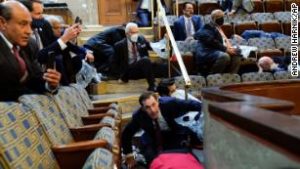






 Wanna get elected in the Unites States?
Wanna get elected in the Unites States?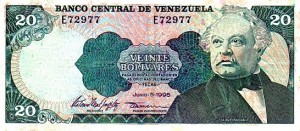 Featured article quotation:
Featured article quotation:  What’s next for Cuba … and Venezuela?
What’s next for Cuba … and Venezuela? Socialism continues in Cuba and Venezuela both. The revolutions in those countries have stalled. This has been the case for many years, decades and even generations. Perhaps more is needed than just influencing American Foreign Policy towards these countries; perhaps there is the need to impact domestic policy from inside the country. This is the approach of the Go Lean roadmap in regards to Cuba.
Socialism continues in Cuba and Venezuela both. The revolutions in those countries have stalled. This has been the case for many years, decades and even generations. Perhaps more is needed than just influencing American Foreign Policy towards these countries; perhaps there is the need to impact domestic policy from inside the country. This is the approach of the Go Lean roadmap in regards to Cuba. Go Lean Commentary
Go Lean Commentary Now that the COVID-19 crisis is imperiling the world in general and Europe in particular, that once proud EU interdependence is now reverting to the dreaded state-only independent thinking and nationalism. Ouch! Be afraid; be very afraid!
Now that the COVID-19 crisis is imperiling the world in general and Europe in particular, that once proud EU interdependence is now reverting to the dreaded state-only independent thinking and nationalism. Ouch! Be afraid; be very afraid!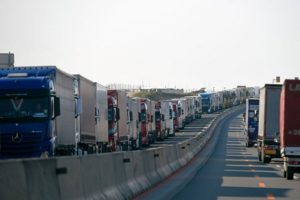
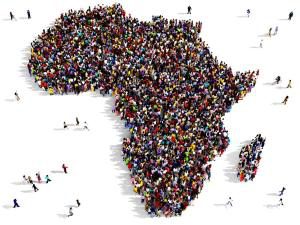 On a deeper reading of the article, I see this as disinformation that Europe has put out into the mainstream to neutralize any effort or bright ideas that Africa and the African Diaspora might have regarding a
On a deeper reading of the article, I see this as disinformation that Europe has put out into the mainstream to neutralize any effort or bright ideas that Africa and the African Diaspora might have regarding a 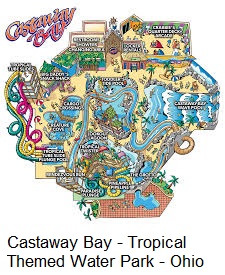 Yes, we can …
Yes, we can …





 Face the truth, the “little one” is often invisible and ignored …
Face the truth, the “little one” is often invisible and ignored … “One Accord”, in this case, does not refer to the vehicle from the Japanese Auto Company Honda …
“One Accord”, in this case, does not refer to the vehicle from the Japanese Auto Company Honda …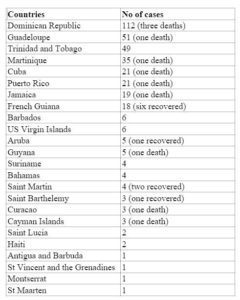
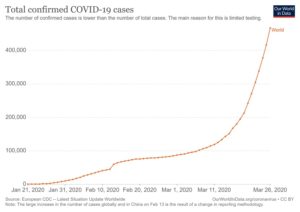 China, South Korea, Iran, Italy have individually engaged in unifying their voice for consistent leadership in this Coronavirus battle. Now, we have many Caribbean nations that have been afflicted – people have died – but we need the rest of the world to respect our policies and decision-making. There need not be any guessing as to whether Caribbean nations are open or closed. We need the full region to “shelter-in-place” everywhere and close our borders. We need to allow this crisis to pass, with minimal contagions, so that we can quickly re-open to a disease free environment.
China, South Korea, Iran, Italy have individually engaged in unifying their voice for consistent leadership in this Coronavirus battle. Now, we have many Caribbean nations that have been afflicted – people have died – but we need the rest of the world to respect our policies and decision-making. There need not be any guessing as to whether Caribbean nations are open or closed. We need the full region to “shelter-in-place” everywhere and close our borders. We need to allow this crisis to pass, with minimal contagions, so that we can quickly re-open to a disease free environment.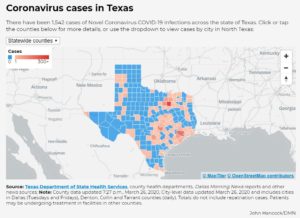
 Dallas County was the first in the state to announce a shelter-in-place order, which went into effect Monday night.
Dallas County was the first in the state to announce a shelter-in-place order, which went into effect Monday night.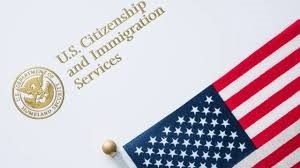 Wait, what?!
Wait, what?!
 Wernher Magnus Maximilian, Freiherr von Braun (March 23, 1912 – June 16, 1977) was a German and later American aerospace engineer and space architect. He was one of the leading figures in the development of rocket technology in Germany and the United States and is considered one of the “Fathers of Rocket Science”. He was also a member of the Nazi party and the Schutzstaffel (SS), and was suspected of perpetrating war crimes during World War II.
Wernher Magnus Maximilian, Freiherr von Braun (March 23, 1912 – June 16, 1977) was a German and later American aerospace engineer and space architect. He was one of the leading figures in the development of rocket technology in Germany and the United States and is considered one of the “Fathers of Rocket Science”. He was also a member of the Nazi party and the Schutzstaffel (SS), and was suspected of perpetrating war crimes during World War II. In 1950, at the start of the
In 1950, at the start of the  The city is nicknamed “The Rocket City” for its close association with U.S. space missions.
The city is nicknamed “The Rocket City” for its close association with U.S. space missions.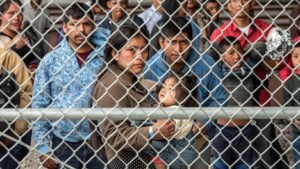
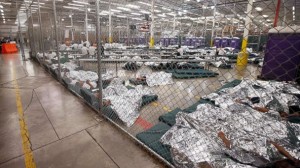
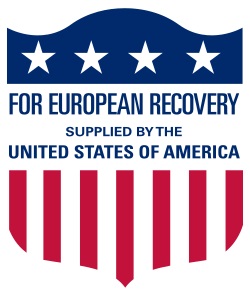
 In September 2017, Hurricane Maria devastated the island of Puerto Rico (PR), “bombing” its infrastructure. The island needed (actually still needs) all the help it could get. PR must reboot! Help came from the US Federal government … eventually. The US President now claims that his administration has given $91 Billion.
In September 2017, Hurricane Maria devastated the island of Puerto Rico (PR), “bombing” its infrastructure. The island needed (actually still needs) all the help it could get. PR must reboot! Help came from the US Federal government … eventually. The US President now claims that his administration has given $91 Billion. The book Go Lean…Caribbean asserts that the Caribbean must first look to the Caribbean to effect the needed change in the region. The idea of someone “
The book Go Lean…Caribbean asserts that the Caribbean must first look to the Caribbean to effect the needed change in the region. The idea of someone “ Oh wait! It’s a mirage. It is past time for PR to realize that its panacea is not the American eco-system. It is time to
Oh wait! It’s a mirage. It is past time for PR to realize that its panacea is not the American eco-system. It is time to